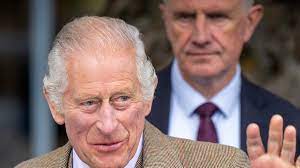Kenya Human Rights Commission Calls for King Charles III to Apologize for Colonial Abuses
The Kenya Human Rights Commission, a prominent non-governmental organization, has demanded an official apology from King Charles III for the atrocities committed by Britain during the colonial era in Kenya. The monarch is scheduled to embark on a four-day visit to Kenya commencing this Tuesday, with the intention of gaining a deeper understanding of the historical injustices suffered by the Kenyan people.
One of the darkest chapters in Kenya’s history unfolded during the 1950s, when more than 10,000 lives were lost as British authorities brutally suppressed a pro-independence movement. Shockingly, over 1,000 individuals were subjected to summary trials and subsequently hanged. The scars of this brutal period still resonate within Kenyan society.
The Kenya Human Rights Commission, speaking out on Sunday, expressed its anticipation of an “unequivocal public apology” from King Charles III during his visit. The demand for acknowledgment and remorse for past injustices is not new. A decade ago, the British government officially recognized the occurrence of torture under the colonial administration. It offered a sincere apology and agreed to compensate thousands of veterans of the independence struggle.
However, the call for justice extends beyond this recognition, as several Kenyan communities, including the Nandi, Kipsigis, and Pokot, are also urging the UK government to apologize and provide financial restitution for the historical injustices perpetrated against them during colonial rule. Moreover, these communities are demanding the return of traditional artifacts and ancestral lands seized by the colonial regime and still held by British entities.
The impending visit of King Charles III to Kenya has brought these unresolved historical issues to the forefront, prompting a renewed plea for reconciliation and justice from those who continue to bear the scars of a painful past.






